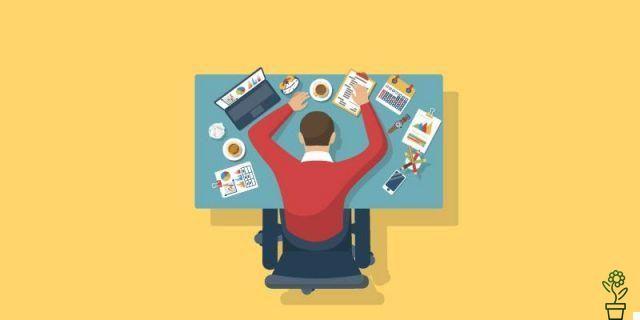
In the early 80s, when Howard Scott Warshaw was 23, he met Steven Spielberg. Warshaw had made a name for himself in Silicon Valley after designing the hit Indiana Jones video game for the Atari 2600, so Spielberg chose him to design a game based on his 1982 ET movie.
Atari and Spielberg wasted precious time negotiating the rights to the product, so Warshaw barely had five weeks to create the game from scratch. The Indiana Jones video game took a full year of work.
Warshaw went to work. He worked frantically 24 hours a day, 7 days a week. The result was what was considered the "worst video game of all time". The result was so disastrous that Atari had many returns and was forced to bury millions of cartridges in a landfill in New Mexico.
Today, in a world spinning at dizzying speed, where everything must be done "now", anyone can feel fully identified with the Warshaw situation. Modern workplaces pressure us, expecting us to behave like perfectly synchronized machines and demanding that we finish as quickly as possible. They ask us to think like computers, to carry out tasks at an impossible speed and respond in seconds, so as not to be considered lazy people.
It's impossible.
And we are paying a high price for this pace of work, especially in terms of mental health. The World Health Organization states that depression must be addressed as a global crisis and warns that nervous breakdown is the main occupational risk we are exposed to, and has become the "new normal".
The main problem is that the work is considered an honorary badge. Being successful at work often equates to being successful in life as well. We have been programmed from an early age to work hard, compromise with work has crept into our synaptic connections. We think a job well done is a good reason to be proud, regardless of the price we have to pay.
But when the work environment becomes toxic, it ends up taking away our psychological balance and our health. Our life's work robs us of our whole life. Before we get to that point, and it's too late, we need to stop and think about what we can change.
Why should you give more importance to your mental health?
- Because you are not your profession. While many people identify with their profession, it is important to be aware that we are not a psychologist, lawyer or doctor. It is more correct to say that we are a psychologist, a lawyer or a doctor. Our profession, as much as we like it, is just one of our many facets, so we shouldn't let it overshadow the rest. We have to be careful with this role mentality, confusing the profession with our identity and letting ourselves be defined completely, because we will end up being a limited version of what we could be.
- Because there is no "success" without mental health. Awards, very high incomes and high-sounding titles do not give us back our health once it is lost. If you eat chained to your desk or respond to emails and messages in the middle of the night, life will hit the bill sooner or later. And your mental or physical health isn't worth paying for. Surely your epitaph won't refer to how quickly you responded to emails or how efficient you were. Don't make the mistake of trading success for health and confusing "a good life" with a "life full of goods".
- Because there is a greater chance that everything will go smoothly when you set limits. It is important to know the difference between worrying about work and dedicating your whole life to it by pushing the boundaries, because the distance between the two is short. Set limits and schedule times so you can disconnect from work. Leaving room for rest and setting aside time for yourself will increase your efficiency and productivity, as well as allow you to be more creative. The better you feel, the more you will perform and with less effort.
- 144


























